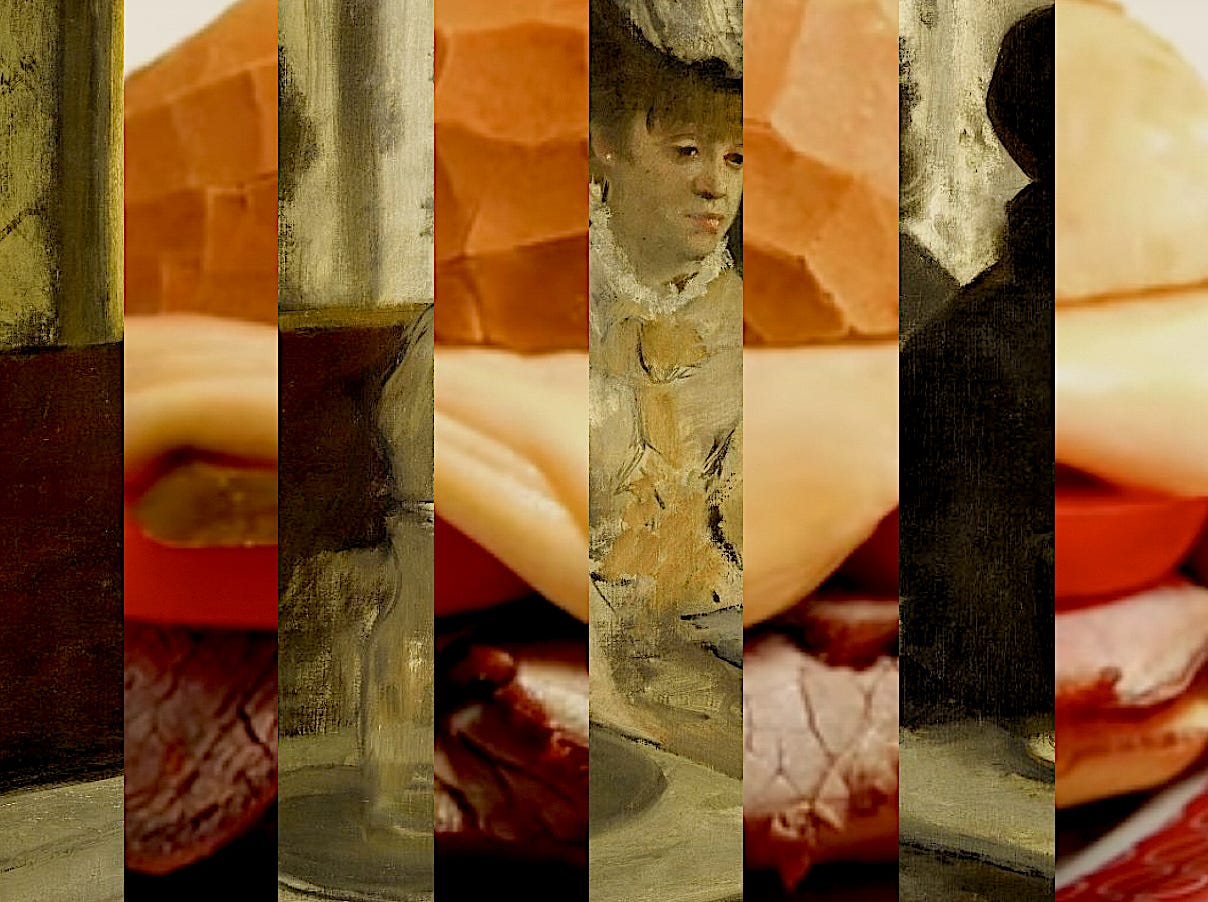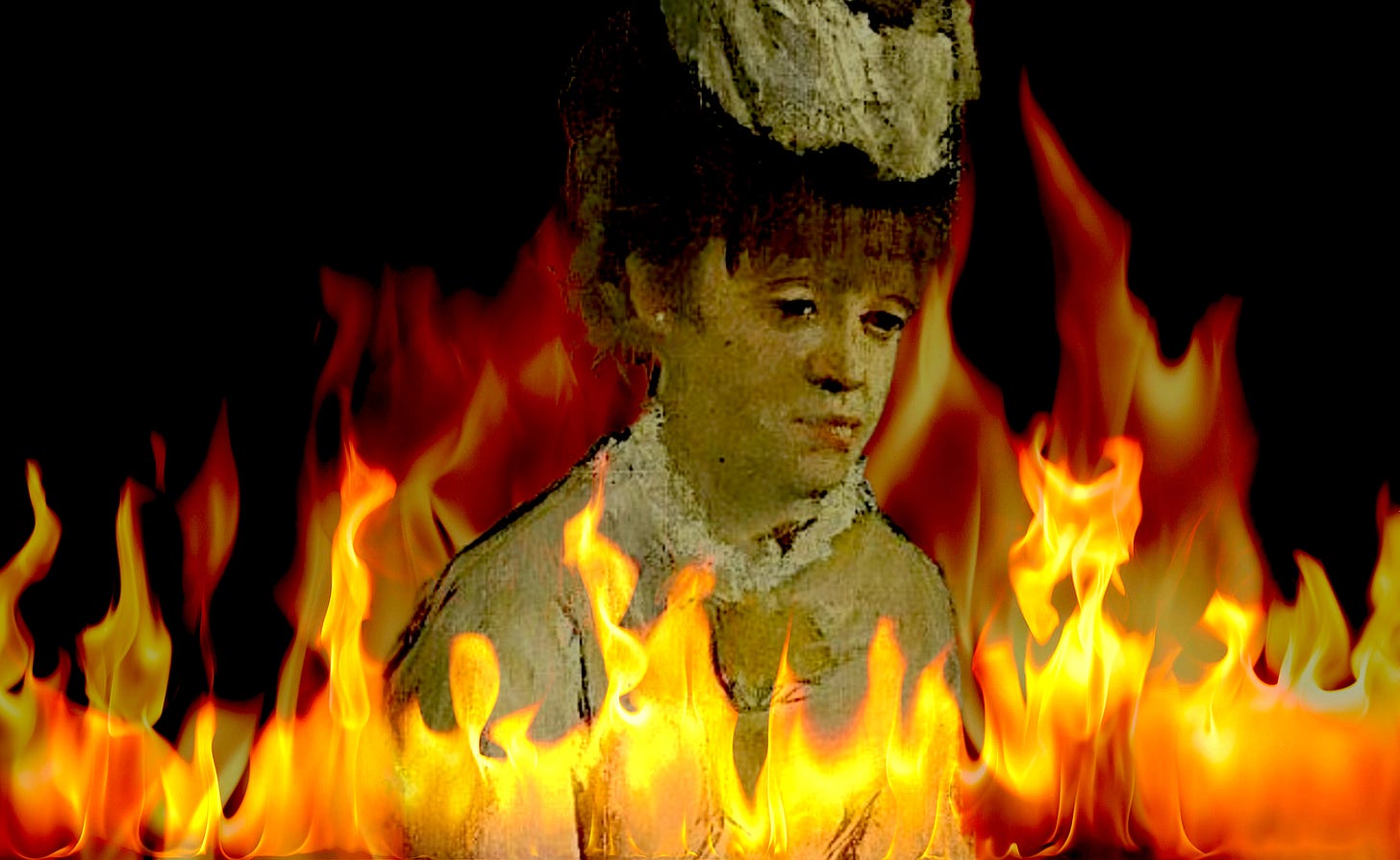Notable Sandwiches #10: Bauro'd Time
What you don’t write about when you write about a sandwich
Welcome to the latest installment of Notable Sandwiches, the series in which I faithfully chronicle the bizarre and twisted document that is Wikipedia’s List of Notable Sandwiches, in alphabetical order.
Today I am supposed to write about the bauru, a Brazilian sandwich of roast beef, tomato and mozzarella.
I tried.
I looked, half-heartedly, into the history of cattle cultivation in South America that turned the Old World-dwelling aurochs into the modern cow, the staple of Brazilian and Argentinian tables. I thought about Argentinian churrascos and the many iterations of roast beef sandwich I’ve consumed. I researched a bit into the history of cheese, drawing on the redoubtable Mark Kurlansky; I learned that “mozzarella” is named after the method of its creation, as “mozza” is a South Italian dialect word for “cut” and the cheese is made by shaping cut curds in hot water, stretching and stretching them. How all this became a sandwich in Brazil is an elaborate story of colonization and cultural interchange, what that destroys and what it leaves. It’s also the story of the nameless student from the town of Bauru who ordered the sandwich so often that it became his namesake at the legendary student eatery called Ponto Chic in Sao Paolo. Bauru the town has since adopted the sandwich as a kind of symbol, bain-marie-melted mozz, hollowed-out crumb, pickles, tomatoes and all. I could have—I should have—poured more energy into my thoughts on this, teasing out the webs of history pressed into this sandwich. I love food writing. I hate giving it short shrift.
But I’m a mess. Good and loving writing, elegant and contemplative writing, takes thinking and time and while I’ve had the time I have not been able to think very much.
Late last year I said I’d take a break for a bit from this newsletter, from the churn of cultivating my thoughts into presentable little gardens, fertilized with research and trellised by elaborate paragraphs. I thought I would take the time, a few weeks, not just to move my possessions to a new apartment, but to write anew, working both on my book and perhaps storing a few columns for the future. This was not a well-laid plan, let alone a best-laid one, but it nonetheless went awry: I fell ill; I grew lethargic, swollen and glum and little inclined to any sort of labor. I stopped running, got out of the habit of movement. I did my best to fuse with my couch, as if I could lend it the atoms of my body. I spent most of the past month draped in a huge blanket with a knight on it as the world went to hell all over again. And I moved apartments, and my roommates have covid, and so the kitchen and the bathroom feel fraught with dangerous, miasmatic air.
The Sword and the Sandwich is a newsletter about serious extremism and equally serious sandwiches. Please consider supporting this work with a paid subscription:
It’s hard to work on self-improvement, on future-minded projects—even if the future you have in mind is near at hand—during a pandemic surge. We have been through enough of them—alpha, delta, omicron—that it feels like there ought to be a pattern to the way we behave, like an earthquake drill, or a school-shooter drill for kids. Instead, there isn’t. It’s all uncertainty, some of us blithe and even contemptuous of others’ fear, others doing their best to layer precautions on precautions, most somewhere in the middle. No safety net; no shoring-up of the rattling walls that hold back desperation; no sanctuary; no slack in the taut rope to which we’re barely hanging on. How do we live with and around and despite disease? Keeping ourselves safe, and others who are vulnerable?
And moreover, it’s been a year since the storming of the Capitol, the media coverage of it fixing the event as one point in time, when really it’s a roiling and seething movement, ongoing—gaining strength from the fear and immiseration of the pandemic, as all violent and conspiracy-minded movements tend to do. There are elections this year. I can feel my hackles rising, the twinge of epigenetic survival traits telling me to pull up posts and run. Instead I hide under the big, big blanket, and I stay put, lumpish, wishing impotently for a better world.
Considering all this, my thoughts feel muddled, full of anger, tangled inside me and refusing to come out. When they do, it’s like this—incoherent and troubled, snarled with punctuation, a bad garden gone to seed. I’ve moved house—for an agoraphobe, this is more or less like removing a turtle-shell, leaving me a limp little reptile in the height of winter, no sun to draw strength from. My blood is sluggish, my heart feeble. How can I write about a sandwich and give it its proper due? How can I write about what’s coming, what’s happening right now, about the cult of martyrdom that’s descended around the perpetrators of the Capitol storming, about the narrative of persecution that’s enveloped the right so thoroughly it will serve as impetus for violence for years and years to come? They’re coming for the schools, for the elections, for people with any vulnerability. All the smug pundits and all the experts have little to offer, and the ones who know the most are left out of the glossy studios. How can I write about the whole world or the littlest sandwich within it, when my thoughts feel like peanut butter left out in sleet, when I’m never sure what gender I am on any given day, when I contemplate the people who call me an ugly goblin for hours and hours, when I think about dying with relief, and panic, and then relief?
All of this is to apologize for not writing about the bauru with the reverence it’s due, since bread is due all reverence; for not exploring the full impact of Portuguese colonization on the Brazilian beef industry; for not offering you piquant factoids from the history of cheese; for not offering the best of myself. All my life I’ve tried to shuffle-tap-step to dazzle, using an armada of florid essays to deflect from my own deficiencies. This month has been too much for me, all this darkness and death, all this fear, the only certainty that things will get worse. There is also the certainty that stronger people than me—and maybe even me, when I get stronger—will keep fighting for good to emerge from this miserable morass. There is the certainty of good bread, and cheese, and the eons of history that made them as they are. Sharp pickles, ripe tomatoes—they’re certain, tart and juicy and real. When you bite into one you can forget anything else, you can imagine yourself in Bauru, and elsewhere, in the better world we deserve.







I'm going to make this sandwich and then I'm going to eat this sandwich and then I'm going to reach out to a couple people who just might needed someone to reach out to them.
Please care for yourself as best you can. Sandwiches aren't going anywhere, and neither are we, your ardent fans.